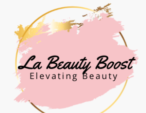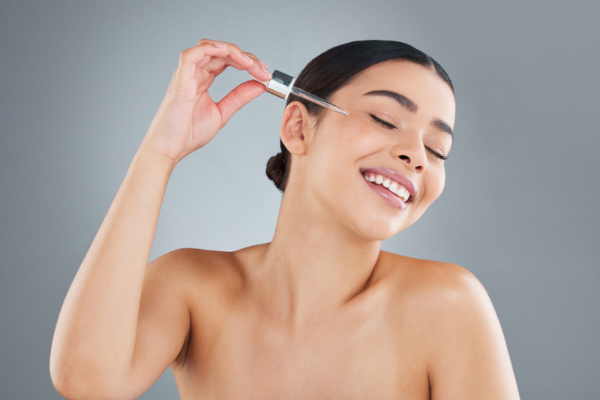
After years of experimenting with different skincare products, I discovered the key to achieving glowing, anti-aging, and hydrated skin through five transformative serums. My personal journey has led me to these powerhouse ingredients, each offering unique benefits that have significantly enhanced my complexion. If you’re seeking radiant, youthful skin, incorporating these serums into your routine might just be the game-changer you need.
*As an Amazon Associate, I earn from qualifying purchases. This means I may earn a small commission if you purchase products through my affiliate links at no extra cost to you.*
1. Vitamin C
What It Does: Vitamin C is a potent antioxidant that offers multiple skin benefits. It protects against environmental damage, brightens the complexion, and promotes collagen production. By neutralizing free radicals, Vitamin C helps reduce the appearance of dark spots and hyperpigmentation, resulting in a more even skin tone. Additionally, it supports skin firmness and elasticity, minimizing the visibility of fine lines and wrinkles.
Benefits:
- Brightens: Vitamin C reduces hyperpigmentation and evens out skin tone.
- Protects: It shields the skin from environmental aggressors like UV rays and pollution.
- Boosts Collagen: Enhances skin firmness and elasticity.
- Reduces Dullness: Restores a youthful glow.
Recommended Products:
SkinCeuticals C E Ferulic
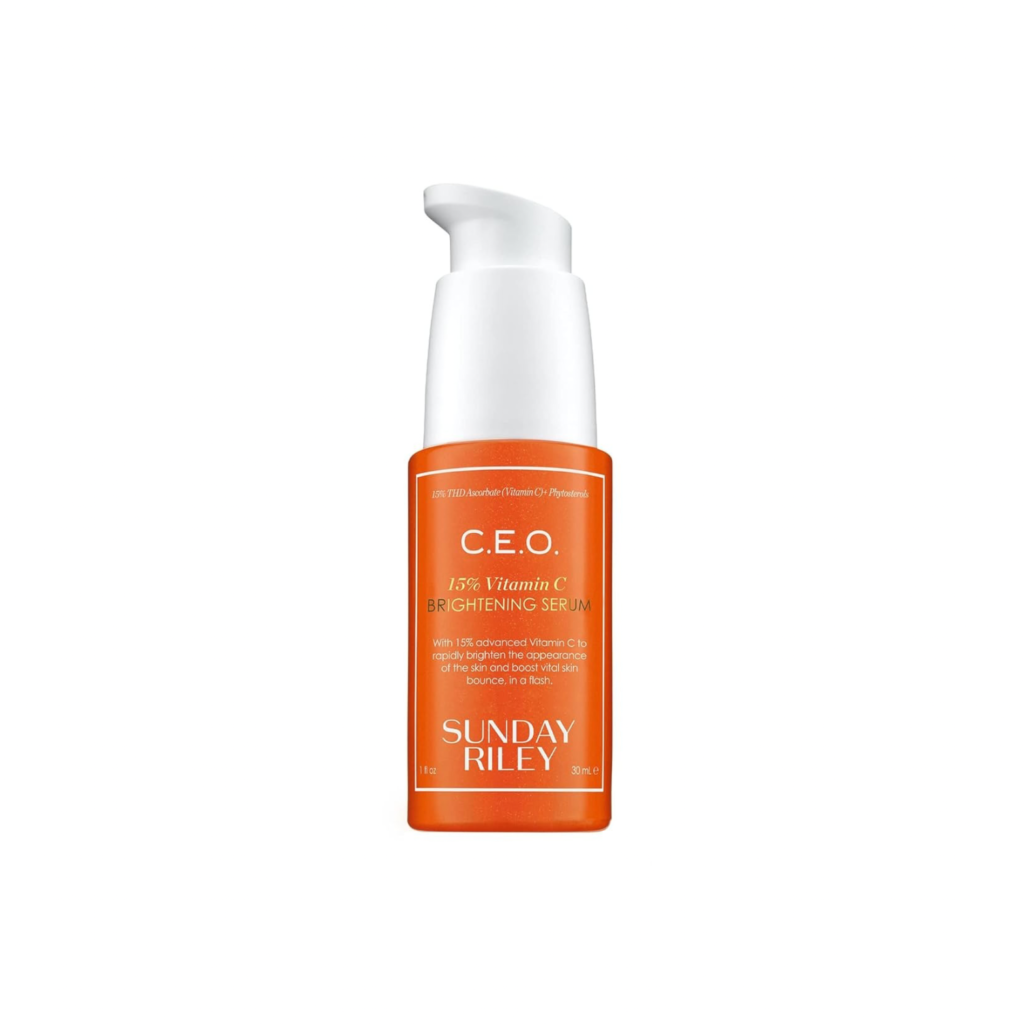
- Type of Skin: is suitable for all skin types, including sensitive skin.
- When to Use: Apply a few drops to clean, dry skin in the morning, followed by your moisturizer and sunscreen.
Obagi Professional-C Serum 20%
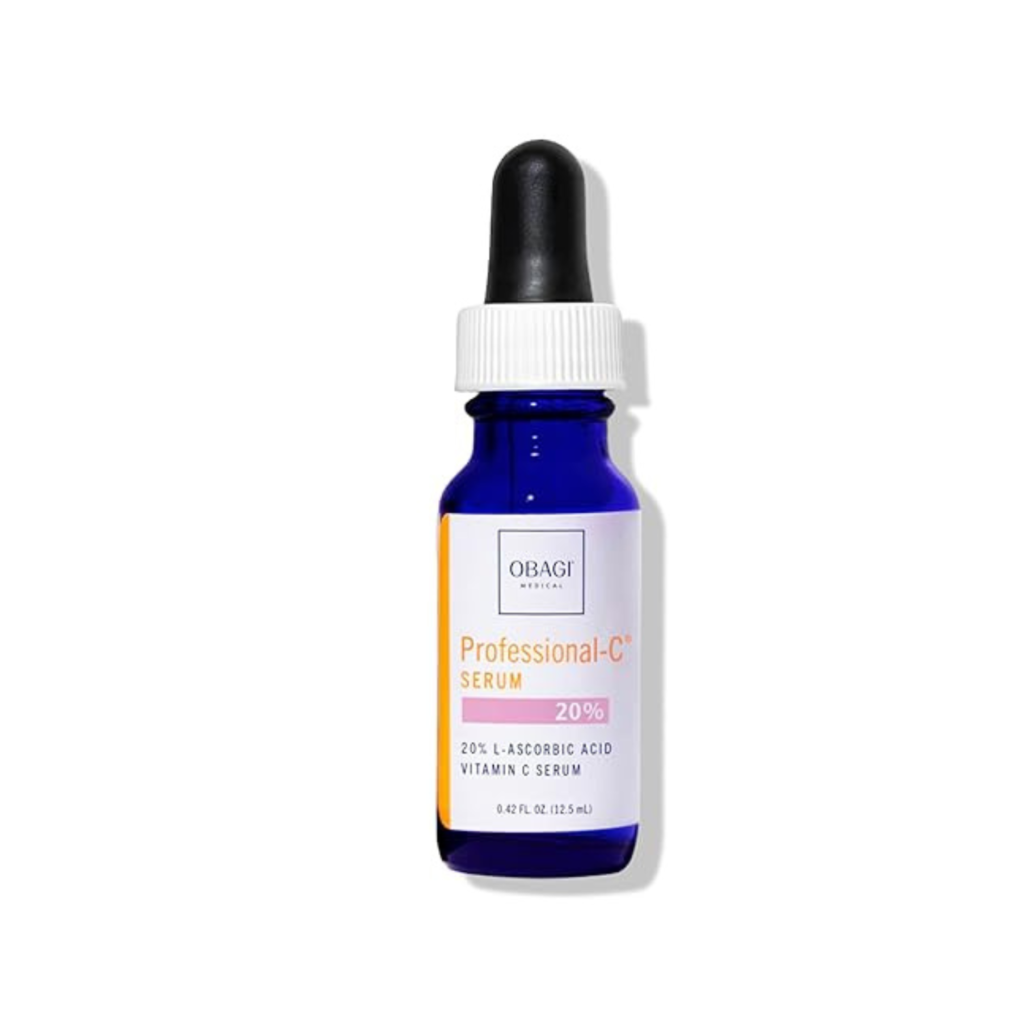
- Type of Skin: Suitable for all skin types, particularly beneficial for those with hyperpigmentation.
- When to Use: Use 5-6 drops in the morning after cleansing, then apply sunscreen.
2. Retinol
What It Does: Retinol, a derivative of Vitamin A, is renowned for its anti-aging properties. It accelerates cell turnover, helping to shed dead skin cells and reveal fresher, smoother skin. Retinol also reduces the appearance of fine lines and wrinkles, fades dark spots, and improves overall skin texture. For those with acne-prone skin, Retinol can help clear clogged pores and prevent future breakouts.
Benefits:
- Reduces Wrinkles: Minimizes the appearance of fine lines and wrinkles.
- Improves Skin Texture: Smooths skin and refines pores.
- Boosts Radiance: Unveils brighter skin by accelerating cell turnover.
- Fights Acne: Clears breakouts and prevents clogged pores.
Recommended Products:
Neutrogena Rapid Wrinkle Repair Retinol Serum
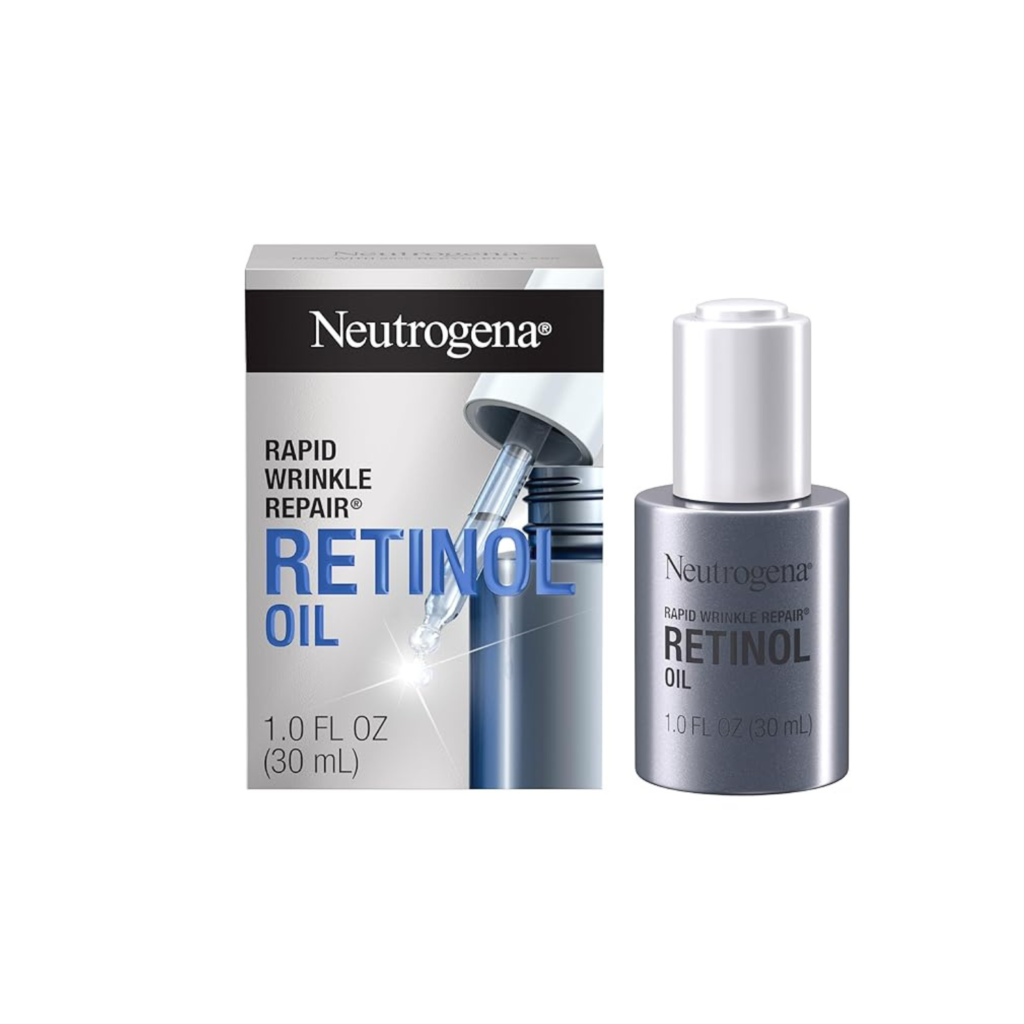
- Type of Skin: Suitable for all skin types, but particularly effective for aging skin.
- When to Use: Apply once daily, ideally in the evening, Make sure to follow with a broad-spectrum SPF during the day to protect the skin.
CeraVe Resurfacing Retinol Serum
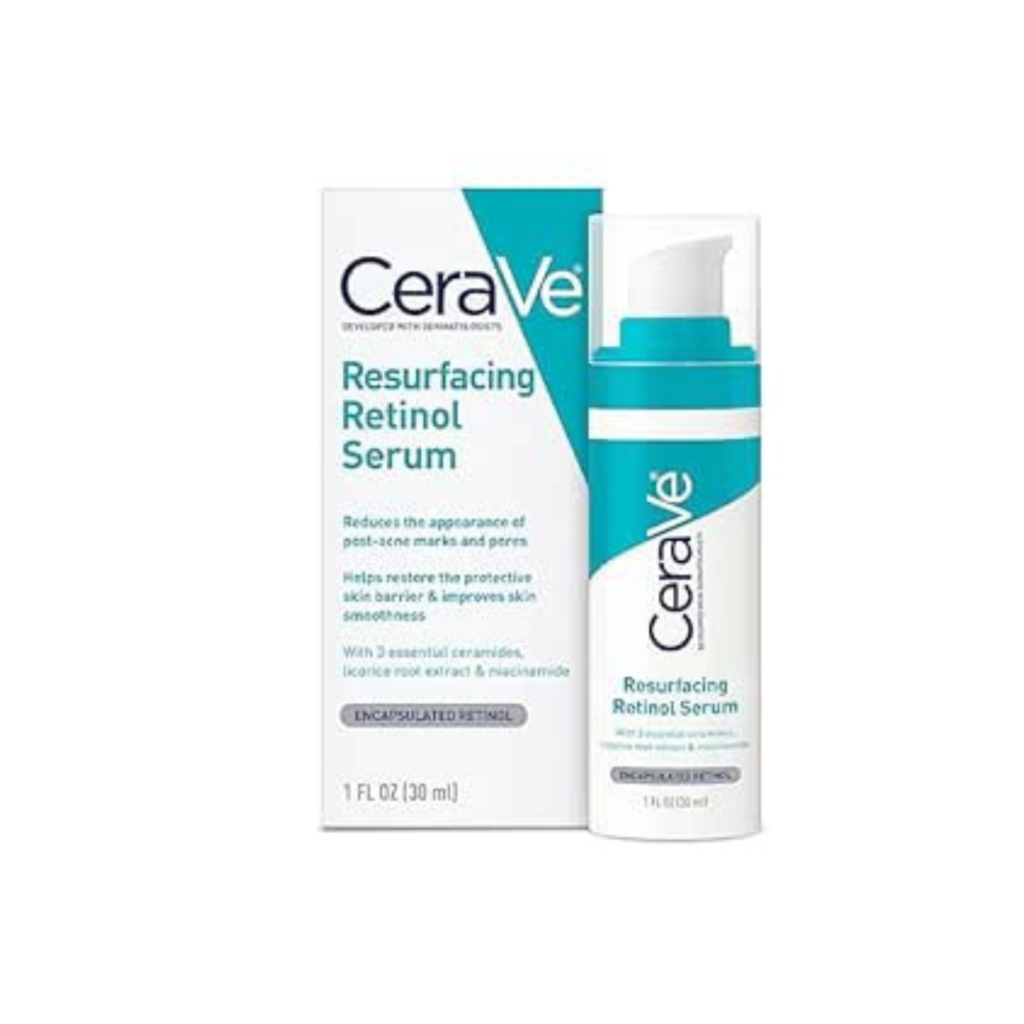
- Type of Skin: Best for oily, combination, or acne-prone skin.
- When to Use: Use it in the evening after cleansing and before moisturizing.
3. Niacinamide (Vitamin B3)
What It Does: Niacinamide is a versatile ingredient that provides multiple benefits for the skin. It improves the skin barrier function, reduces inflammation, and helps minimize the appearance of pores. Niacinamide also brightens skin and evens out skin tone, making it ideal for those dealing with redness or hyperpigmentation. Additionally, it helps regulate oil production, making it beneficial for oily or combination skin.
Benefits:
- Reduces Pore Size: Tightens enlarged pores.
- Evens Skin Tone: Minimizes redness and blotchiness.
- Boosts Hydration: Enhances the skin’s natural moisture barrier.
- Controls Oil: Regulates sebum production, reducing shine.
Recommended Products:
The Ordinary Niacinamide 10% + Zinc 1%
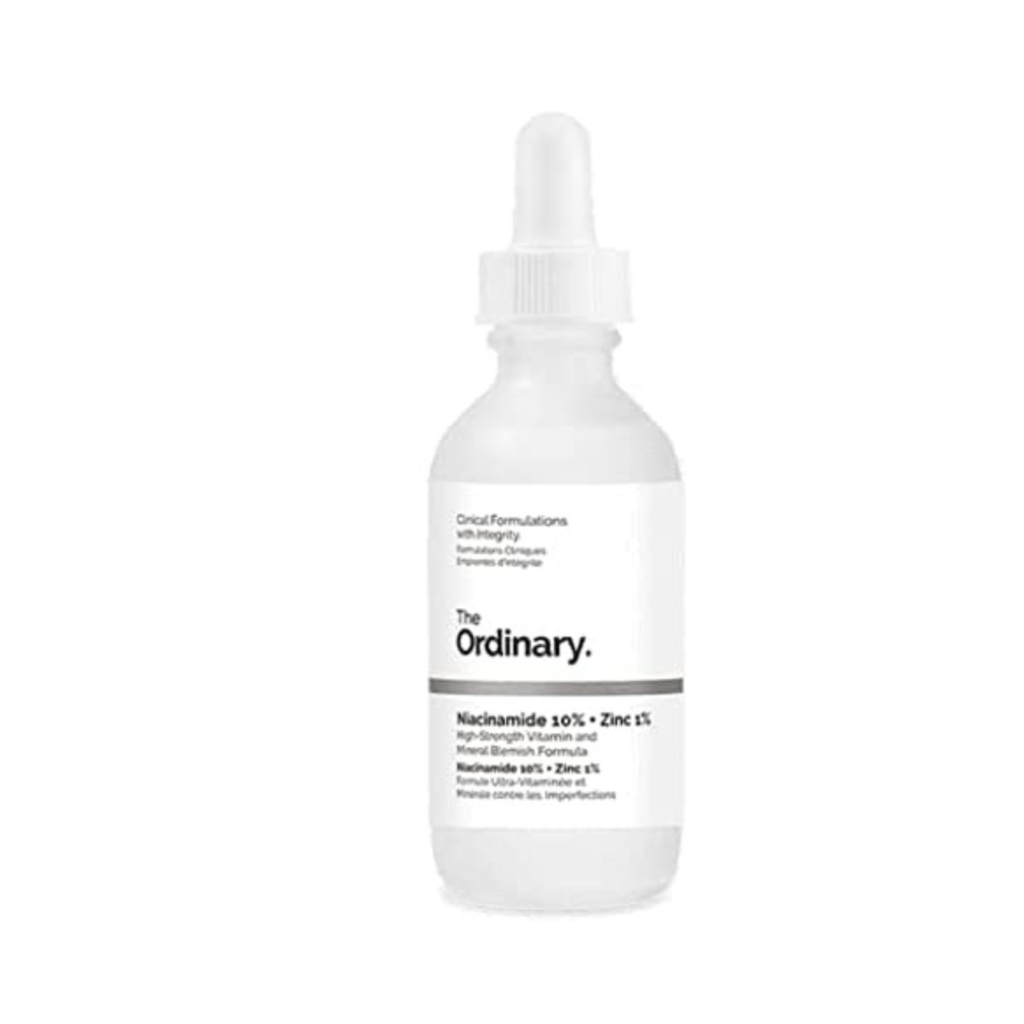
- Type of Skin: Best for oily and acne-prone skin.
- When to Use: Apply a few drops in the morning and evening before moisturizer.
Paula’s Choice 10% Niacinamide Booster

- Type of Skin: All skin types, especially those with uneven tone or texture.
- When to Use: Mix with a serum or moisturizer and apply twice daily.
4. Glycolic Acid
What It Does: Glycolic Acid, an Alpha Hydroxy Acid (AHA), is an effective exfoliant that removes dead skin cells from the surface. This process reveals smoother, brighter skin and helps reduce the appearance of dark spots and uneven texture. Glycolic Acid accelerates cell turnover, making it ideal for those looking to refresh and renew their complexion. It also enhances the absorption of other skincare products, maximizing their effectiveness.
Benefits:
- Exfoliates: Removes dead skin cells, improving texture.
- Brightens: Promotes a radiant, glowing complexion.
- Reduces Fine Lines: Helps smooth out wrinkles and fine lines.
- Improves Absorption: Enhances the effectiveness of other skincare products.
Recommended Products:
The Ordinary Glycolic Acid 7% Toning Solution
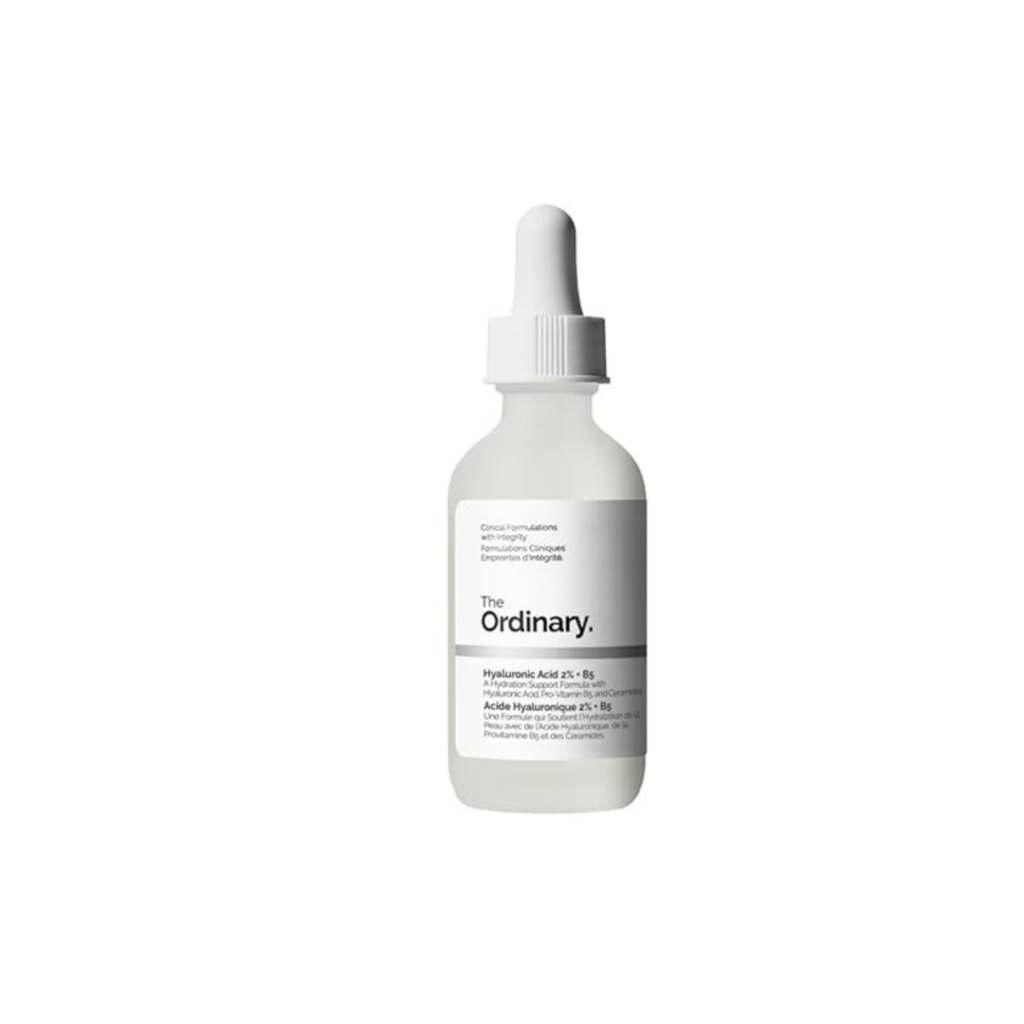
- Type of Skin: Best for normal to oily skin but can be harsh on sensitive skin.
- When to Use: Apply in the evening using a cotton pad, followed by moisturizer.
Pixi Glow Tonic
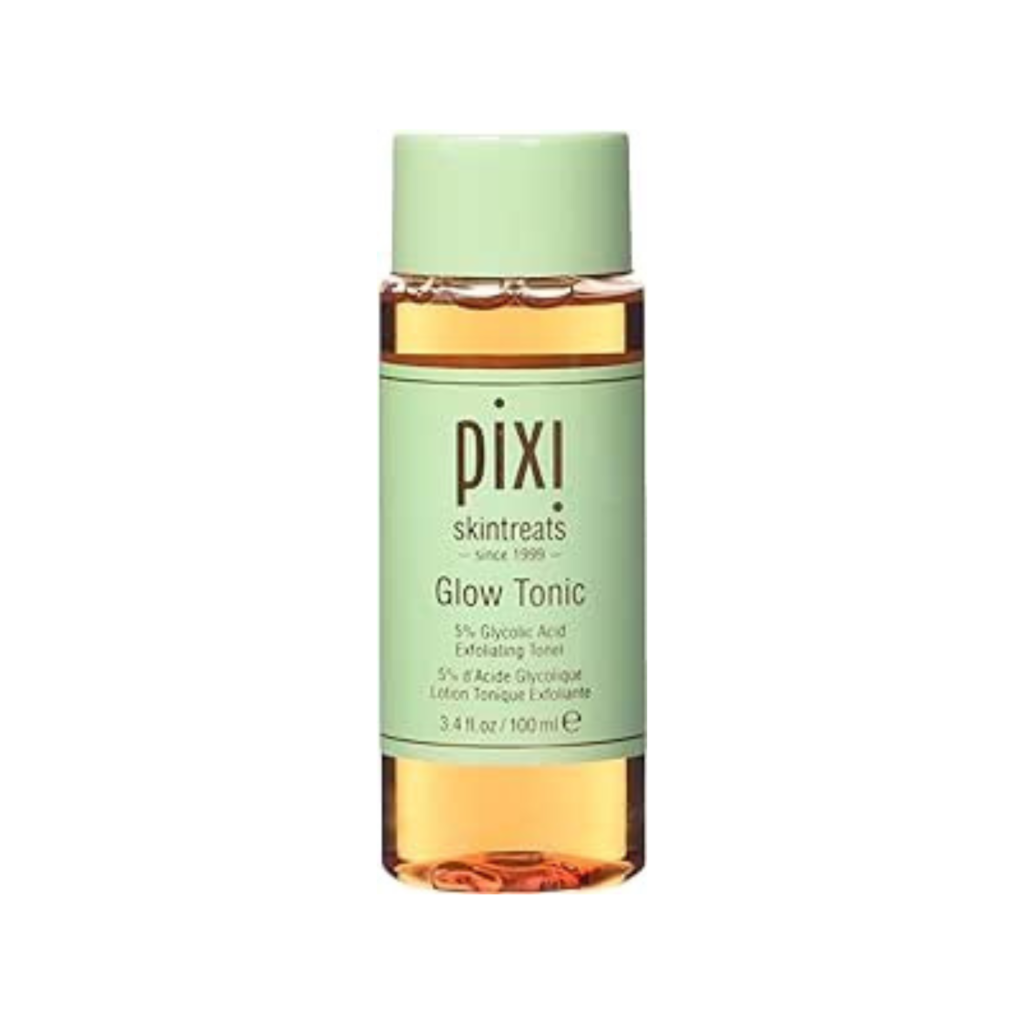
- Type of Skin: All skin types, including sensitive skin due to its gentle formula.
- When to Use: Apply after cleansing in the evening and follow with your serums and moisturizer.
5. Hyaluronic Acid
What It Does: Hyaluronic Acid is renowned for its hydrating properties. It attracts and retains moisture in the skin, making it look plump, smooth, and radiant. This ingredient is especially beneficial for dry or dehydrated skin, as it helps maintain moisture levels throughout the day. Hyaluronic Acid also soothes irritation and reduces dryness, enhancing overall skin comfort.
Benefits:
- Hydrates: Deeply moisturizes the skin and improves elasticity.
- Plumps: Reduces the appearance of fine lines by plumping the skin.
- Soothes: Reduces irritation and dryness.
- Enhances Glow: Gives skin a healthy, dewy finish.
Recommended Products:
The Ordinary Hyaluronic Acid 2% + B5
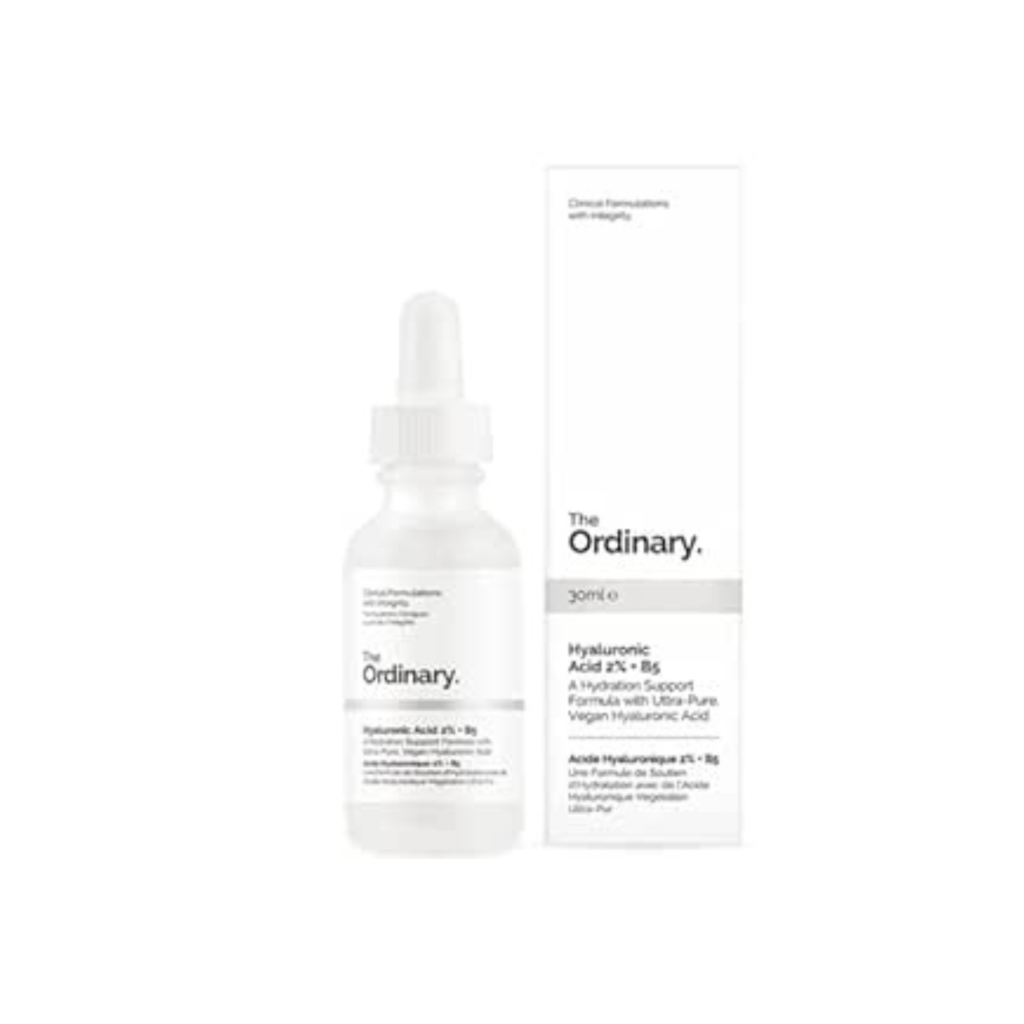
- Type of Skin: Suitable for all skin types, especially dry or dehydrated skin.
- When to Use: Apply to clean skin morning and evening, followed by your moisturizer.
Neutrogena Hydro Boost Hydrating Serum
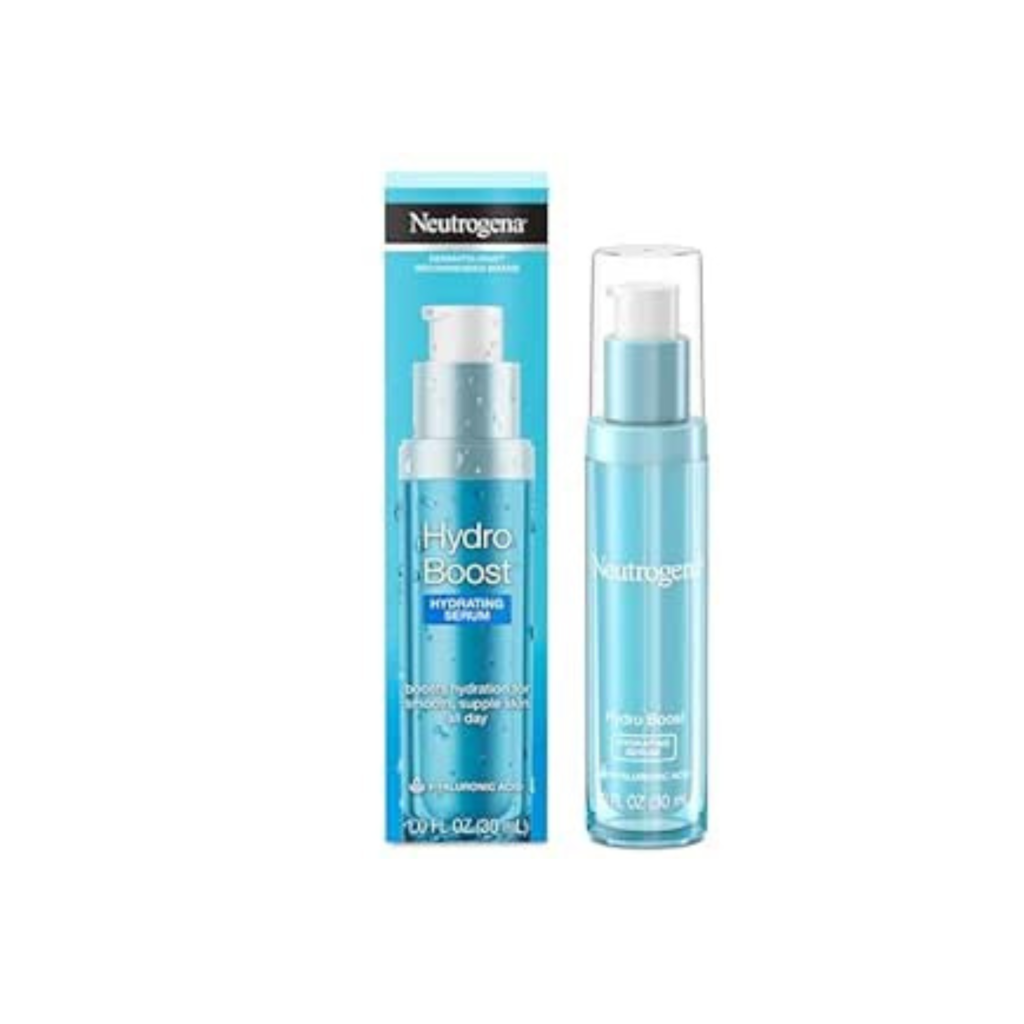
- Type of Skin: Ideal for dry, dehydrated, or sensitive skin.
- When to Use: Use in the morning and evening after cleansing, before applying a moisturizer.
Glow Guide: Skincare Q&A
Q: Can I use Vitamin C and Retinol together?
A: No, it’s best to use Vitamin C in the morning and Retinol at night to avoid irritation and maximize effectiveness.
Q: How should I layer these ingredients?
A: Apply from lightest to heaviest: Glycolic Acid, Vitamin C (AM) or Retinol (PM), Niacinamide, Hyaluronic Acid, and finish with sunscreen in the morning.
Q: Can Niacinamide and Glycolic Acid be used together?
A: Yes, use Glycolic Acid first to exfoliate, then Niacinamide to calm and balance the skin.
Q: Do I need sunscreen when using these ingredients?
A: Absolutely! Many of these ingredients increase sun sensitivity, so daily sunscreen is essential.
Conclusion
Incorporating Vitamin C, Retinol, Niacinamide, Glycolic Acid, and Hyaluronic Acid into your skincare routine is essential for achieving and maintaining a radiant, youthful complexion. Choose Vitamin C to brighten and shield, Retinol to smooth and renew, Niacinamide to balance and soothe, Glycolic Acid to exfoliate and refresh, and Hyaluronic Acid to deeply hydrate.
By selecting these potent ingredients according to your skin's specific needs and consistently using them alongside daily sunscreen, you can unlock your skin’s full potential for a glowing, revitalized appearance.
My Other Blogs:
The Ultimate Guide to the Best Vitamin C Serum
Best 10 Skincare Solutions for Pigmentation: Radiant Skin Awaits
